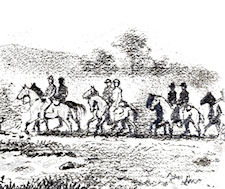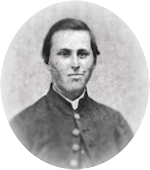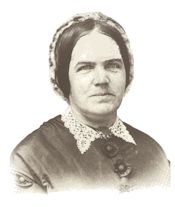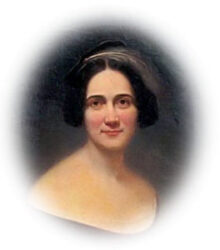Friday, 11th–All is quiet in camp. We have company drill twice a day now for the purpose of drilling our conscripts. We received orders that the last mail would leave for the North tomorrow morning and that all who wanted to write farewell letters home would have to attend to it before that time. The rebel cavalry, about three thousand strong, made a raid on our forces at Atlanta, but were repulsed with heavy loss, for what little they gained.
American Civil War Chronicles
A Rebel War Clerk’s Diary
November 11, 2024
November 11th.–Clear and pleasant. All quiet. No doubt, from the indications, Lincoln has been re-elected.
Now preparations must be made for the further “conflict of opposing forces.” All our physical power must be exerted, else all is lost.
Mr. Sparrow, Louisiana, chairman of the Committee on Military Affairs, introduced a measure, yesterday, in the Senate, which, if consummated, might put all our able-bodied men in the field. It would equalize prices of the necessaries of life, and produce a panic among the speculators. I append it. But, probably, the press will have to be suppressed, “as a war measure,” too, to pass it:
“A bill to extend the assessment of prices for the army to all citizens of the Confederate States:
“Whereas, the depreciation of our currency is, in a great measure, produced [continue reading…]
War Diary of Luman Harris Tenney.
November 11, 2024
11th. Friday. On picket in P. M. Letter from home. Rebs around.
Downing’s Civil War Diary.–Alexander G. Downing.
November 10, 2024
Thursday, 10th–All is quiet in camp. I borrowed $25.00 from William Barrett until next pay day. Several trains came in from the North this morning. We received a large mail. All men unable to stand the march on our Southern expedition are being sent North. Each regiment will be allowed but one wagon, and the number of headquarters wagons will be greatly reduced. Every man in the ranks will have to carry his shelter tent.
A Rebel War Clerk’s Diary
November 10, 2024
November 10th.–Warm; rain and wind (south) all night.
Quiet below. One of the enemy’s pickets said to one of ours, last night, that Warren’s corps had voted unanimously for McClellan, and that New York City has given a majority of 40,000 for him. This is hardly reliable.
Mr. Foote offered a resolution, yesterday, condemning the President’s suggestion that editors be put in the ranks as well as other classes. Now I think the President’s suggestion–will be adopted, as Mr. Foote is unfortunate in his resolutions. Mr. Barksdale (President’s friend) had it easily referred to the Committee on Military Affairs.
Hon. J. A. Gilmer, North Carolina, is applying for many passports through the lines for people in his district. He applies to Judge Campbell.
Coal is selling at $90 per load, twenty-five bushels.
The vote referring Foote’s resolution (on the exemption of editors) was passed unanimously, which is regarded as favoring the President’s recommendation. Mr. Foote had denounced the President as a despot.
Bought two excellent knit undershirts, to-day, of a woman who gets her supplies from passing soldiers. Being washed, etc., they bore no evidences of having been worn, except two small round holes in the body. Such are the straits to which we are reduced.
I paid $15 each; the price for new ones, of inferior quality, is $50 a piece.
War Diary of Luman Harris Tenney.
November 10, 2024
10th. Thursday. Pleasant morning. Clear and mild. Moved back 2½ miles into camp.
The system of roving or independent scouts he regards as detrimental
November 10, 2024
Headquarters Military Division of the West,
Tuscumbia, November 10, 1864.
General J. B. Hood,
…………….Commanding, &c.:
General: General Beauregard instructs me to say that he desires you would instruct Generals Wheeler and Roddey to furnish as early as practicable the number of scouts they have employed, where operating, how employed, organized, and supplied with provisions, how often they report, and whether under the charge of a special officer. He desires that all independent scouts shall forthwith report to some responsible officer, and that all scouts operating in rear of the front line of the army, cavalry included, shall at once report to their proper commands, as only regularly organized companies should be kept in the rear of such lines to collect information and maintain order. They should be supplied with rations and forage in some legitimate way to prevent depredations on private property. The system of roving or independent scouts he regards as detrimental, and should be abandoned.
……………….I am, general, respectfully, your obedient servant,
GEORGE WM. BRENT,
Colonel and Assistant Adjutant-General.
Downing’s Civil War Diary.–Alexander G. Downing.
November 9, 2024
Wednesday, 9th–It is still raining. I went out on picket this morning. We received orders to be ready to move at a moment’s notice, for the purpose of tearing up the railroad tracks. Citizens all around Atlanta, hearing that the Yankees are going to leave the place, are coming in larger numbers to go North. Women leave their homes and all they have, and with their children walk a distance of thirty miles, for the sake of getting to the North. Where both armies have been ravaging the country, the people are destitute—haven’t anything to eat—and therefore they have to leave their homes. No news from the North.
0
November 9, 2024
November 9th. The election passed off very quiet yesterday. No trouble. Great rejoicing over the re-election of Honest Old Abe. We feel that it was a great victory, and do believe that the war will soon be over. Allowed to go home for a short visit. Ordered to assemble at the camp on tomorrow night, and by the morning of the 11th, to return to Martinsburg.
A Rebel War Clerk’s Diary
November 9, 2024
November 9th.–Rained last night; clear this morning, and warm. All quiet below, except the occasional bombs thrown at the canal by our iron-clads.
The press is mostly opposed to the President’s project of employing 40,000 slaves in the army, under promise of emancipation. Some indicate the belief that the President thinks the alternatives are subjugation or abolition, and is preparing the way for the latter.
The Enquirer is averse to conscribing editors between the ages of eighteen and forty-five. The editor says it would be a violation of the Constitution, etc. We all believe Lincoln has been easily re-elected. It is supposed Grant will soon receive large accessions from Sheridan’s army, and make another attempt to take Richmond. It will be the most formidable attempt, and will be the most formidably resisted.
A row between Gen. Kemper and Gen. Preston: latter refers papers directly to Col. Shields, Gen. K.’s subordinate. Gen. K. asks to be relieved: Secretary Seddon agrees to it, taking sides with the Bureau of Conscription. But the President does not (yet) agree to it, asks investigation of Gen. K.’s complaints, etc.; and so it rests at the present. The Assistant Secretary of War, his son-in-law Lieut.-Col. Lay, etc. etc. are all on the side of the Bureau of Conscription; but I suspect the President is on the other side. My opinion is that unless the Bureau of Conscription be abolished or renovated, our cause will fare badly. The President states his suspicions of “malpractice” in his indorsement.
Much cheering has been heard this morning in the enemy’s lines–over election news, probably: whether McClellan’s or Lincoln’s success, no one here knows; but no doubt the latter.
War Diary of Luman Harris Tenney.
November 9, 2024
9th. Wednesday. After dinner moved to Mt. Zion church. Met the infantry marching back. Rainy day.
Downing’s Civil War Diary.–Alexander G. Downing.
November 8, 2024
Tuesday, 8th–Still in camp. Some rain today. Ten train loads of army supplies left for the North. A great many refugees are being sent north, as it will be impossible for them to make a living down here during the coming winter. This is election day and everything is very quiet in camp, as political speeches are not allowed in the army. The election went off fine. Our regiment is strong for Old Abraham—three hundred and fourteen votes for Lincoln and forty-two for McClellan. I bought a watch of John Aubin for $18.50. Some of the boys are having lively times down town; they are going in on their nerves, to make up for lost time.
0
November 8, 2024
November 8th. This is the great day, election taking place. We are under orders to respond if wanted.
A Rebel War Clerk’s Diary
November 8, 2024
November 8th.–Wet and warm; all quiet below, and much mud there.
Congress assembled yesterday, and the President’s message was read. He recommends the employment of 40,000 slaves in the army, not as soldiers, unless in the last extremity; and after the war he proposes their emancipation. This is supposed to be the idea of Mr. Benjamin, for foreign effect. It is denounced by the Examiner. The message also recommends the abolition of all class exemptions, such as editors, etc. The Examiner denounces this as a blow at the freedom of the press.
The message is cheerful and full of hope, showing that the operations of the year, in the field, have resulted in no disadvantage to us.
By the Northern papers we find that a fleet of four or five cruisers is devastating their commerce. They sailed recently from Wilmington, in spite of Gen. Whiting.
No attack was made on Richmond during the last few days. I have no doubt [continue reading…]
War Diary of Luman Harris Tenney.
November 8, 2024
8th. Tuesday. The decisive day of the nation. If the cause of the Union prevails today, liberty and union will be ours forever. God grant the right success. Ordered into camp. Moved back through Newtown. Rosser reported prowling about. Voted. 201 for Lincoln, 4 for McClellan. Glorious for the 2nd Ohio.
If Lincoln is reelected I think our fate is a hard one…
November 8, 2024
November 8, 1864.
To-day will probably decide the fate of the Confederacy. If Lincoln is reelected I think our fate is a hard one, but we are in the hands of a merciful God, and if He sees that we are in the wrong, I trust that He will show it unto us. I have never felt that slavery was altogether right, for it is abused by men, and I have often heard Mr. Burge say that if he could see that it was sinful for him to own slaves, if he felt that it was wrong, he would take them where he could free them. He would not sin for his right hand. The purest and holiest men have owned them, and I can see nothing in the scriptures which forbids it. I have never bought or sold slaves and I have tried to make life easy and pleasant to those that have been bequeathed me by the dead. I have never ceased to work. Many a Northern housekeeper has a much easier time than a Southern matron with her hundred negroes.
Downing’s Civil War Diary.–Alexander G. Downing.
November 7, 2024
Monday, 7th–It is cloudy and quite cool. The Eleventh Iowa received six months’ pay this afternoon, besides another installment of the bounty. I got $148.00 in pay and $100.00 of bounty money. Our army is preparing to evacuate Atlanta. The general quartermaster is loading every train going north with the surplus commissariat and all extra army baggage. It is reported that our army is going to fall back as far as Chattanooga, and that we are to destroy the railroad as we go. There is a report that the army of the Tennessee is going on a long expedition further south..[1]
[1] This was through Georgia, but as yet the men knew nothing definite.—Ed.
0
November 7, 2024
November 7th. Nothing special has occurred up to this date. On duty most of the time as corporal of the guard.
A Rebel War Clerk’s Diary
November 7, 2024
November 7th.–Dark and raining. Cannon heard down the river.
To-day our Congress assembles. Senator Johnson, of Missouri (who relinquished six years in United States Senate and $200,000 for the cause), called to see me. He is hopeful of success in the West.
By the Northern papers we see that Mr. Seward has discovered a “conspiracy” to burn all the Northern cities on election day. It may be so–by Northern incendiaries.
Our citizens are still asking permits to bring flour and meal to the city (free from liability to impressment) for “family use.” The speculators divide and subdivide their lots, and get them in, to sell at extortionate prices.
Rumors of fighting toward Petersburg–nothing reliable.
Gen. Lee writes that he sent in the Tredegar Battalion to the foundry a few days ago (desertions being frequent from it); and now he learns it is ordered out to report to Lieut.-Col. Pemberton. He requests that it be ordered back to the foundry, where it is absolutely necessary for the supply of munitions, etc.
War Diary of Luman Harris Tenney.
November 7, 2024
7th. Monday. Went to Cold Spring Gap in Great North Mountains, then around to Russel’s Mills and for forage and camp in old place.
“We are going to shake up the bones of the rebellion.”–Army Life of an Illinois Soldier, Charles Wright Wills.
November 6, 2024
November 6, 1864.
Rain all day. We are preparing for a huge campaign, and are all right glad of it; 50 days’ rations is the word. Don’t know when we start. Montgomery or Augusta are probably the points. We are going to shake up the bones of the rebellion. I would not miss this campaign for anything.
Downing’s Civil War Diary.–Alexander G. Downing.
November 6, 2024
Sunday, 6th–Our division was moved in close to town today and went into camp. We received orders to remain here a few days, to draw clothing and receive our pay. This was glorious news. We pulled down vacant houses and proceeded to build bunks and “ranches” with the lumber, covering them with our rubber ponchos. The Sixteenth Iowa went out with the regimental teams for forage. Nine trains came in over the railroad from the north, loaded with provisions for the army stationed at the different points along the line, and at Atlanta. Things are quite lively in town today.
A Rebel War Clerk’s Diary
November 6, 2024
Sunday, November 6th.–Bright and frosty.
All quiet below. Another day, and if it remains quiet, we may know that Lincoln will be re-elected.
It is said news came from the North last night, that gold sold for $260, and that Governor Seymour had ordered the militia of New York to be in readiness for the protection of the polls on Tuesday next.
G. W. Randolph, late Secretary of War, has sailed for Europe, taking his family with him. Other quondam Confederate States functionaries have gone, or are going. Many have realized fortunes, who were poor, and this country has ceased to be the one to enjoy them in.
A parting letter was written by Mr. Randolph to his friend, R. G. H. Kean, Chief of the Bureau of War–appointed by Mr. R., and from whom I derived the information of the sailing of his patron. Such departures, at a crisis like this, spread additional doubts in the community. Mr. R. was not liable to conscription, if averse to fighting more in our cause, being exempted by Governor Smith as a member of the Common Council.
To-morrow is the day fixed for the reassembling of our Congress, but doubts are entertained whether there will be a quorum.
We shall soon have lively news from Beauregard. If I understand his letter of the 24th ult., he is determined to march the army without delay into Middle Tennessee, leaving Sherman on his right flank and rear. It is a desperate conception, and will probably be a brilliant success–or a sad disaster. Napoleon liked such games. If Beauregard really has great genius, he has now the field on which to display it. If the Tennesseeans and Kentuckians rise, momentous events may follow; if not, it is probably the last opportunity they will have. They have their choice–but blood is the price of independence.
War Diary of Luman Harris Tenney.
November 6, 2024
6th. Sunday. Inspection of division by Major Otis. Undress parade. Col. Purington took leave of the boys. Given three cheers. Ordered out on two days’ scout. Went to forks of road, Cedar Creek and Strasburg over Little North and camped. Acted Adjt. Very laughable scene. A drunken citizen came in, bewildered and lost, almost frozen. He could find a demijohn of brandy if we could only tell him where he laid down.
A Diary From Dixie.
November 6, 2024
November 6th.–Sally Hampton went to Richmond with the Rev. Mr. Martin. She arrived there on Wednesday. On Thursday her father, Wade Hampton, fought a great battle, but just did not win it–a victory narrowly missed. Darkness supervened and impenetrable woods prevented that longed-for consummation. Preston Hampton rode recklessly into the hottest fire. His father sent his brother, Wade, to bring him back. Wade saw him reel in the saddle and galloped up to him, General Hampton following. As young Wade reached him, Preston fell from his horse, and the one brother, stooping to raise the other, was himself shot down. Preston recognized his father, but died without speaking a word. Young Wade, though wounded, held his brother’s head up. Tom Taylor and others hurried up. The General took his dead son in his arms, kissed him, and handed his body to Tom Taylor and his friends, bade them take care of Wade, and then rode back to his post. At the head of his troops in the thickest of the fray he directed the fight for the rest of the day. Until night he did not know young Wade’s fate; that boy might be dead, too! Now, he says, no son of his must be in his command. When Wade recovers, he must join some other division. The agony of such a day, and the anxiety and the duties of the battle-field–it is all more than a mere man can bear.
Another letter from Mrs. Davis. She says: “I was dreadfully shocked at Preston Hampton’s fate–his untimely fate. I know nothing more touching in history than General Hampton’s situation at the supremest moment of his misery, when he sent one son to save the other and saw both fall; and could not know for some moments whether both were not killed.”
A thousand dollars have slipped through my fingers already this week. At the Commissary’s I spent five hundred to-day for candles, sugar, and a lamp, etc. Tallow candles are bad enough, but of them there seems to be an end, too. Now we are restricted to smoky, terrabine lamps– terrabine is a preparation of turpentine. When the chimney of the lamp cracks, as crack it will, we plaster up the place with paper, thick old letter-paper, preferring the highly glazed kind. In the hunt for paper queer old letters come to light.
Sherman, in Atlanta, has left Thomas to take care of Hood. Hood has thirty thousand men, Thomas forty thousand, and as many more to be had as he wants; he has only to ring the bell and call for them. Grant can get all that he wants, both for himself and for Thomas. All the world is open to them, while we are shut up in a bastile. We are at sea, and our boat has sprung a leak.